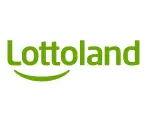Lottoland to pay £150,000 to good causes for advertising failings

Lottoland has agreed to pay a £150,000 penalty after the Gambling Commission found it had breached marketing and advertising codes.
The Commission began investigating the secondary lottery provider after the Advertising Standards Authority upheld a complaint that a radio advertisement misleadingly implied that Lottoland was offering the opportunity to take part in a lottery as opposed to offering bets on the outcome of a lottery.
The Commission also found that Lottoland had failed to make it clear in its third party marketing, website and social media promotions that consumers were betting and not participating in a lottery.
Richard Watson, Gambling Commission programme director for enforcement and intelligence, said: “In this case the operator used ambiguous terminology in their marketing and advertising, which was misleading. That is not acceptable and the £150,000 penalty package reflects the seriousness of Lottoland’s failures. “We expect all operators will learn the lessons from this case and take action to ensure that their consumers are clear about what they are being offered.”
In response Nigel Birrell, CEO of Lottoland, said: “Lottoland was happy to work cooperatively with the Gambling Commission on this important matter. “Lottoland has further enhanced its procedures and controls to ensure all future marketing communications are fully compliant. We look forward to continuing to work in close partnership with the Gambling Commission as we continue to develop and pioneer the lotto betting category.”
The advertisement in question was for bets on EuroMillions tickets, one of the more contentious of Lottoland’s products and it has previously engaged in a war of words with Camelot over its decision to freeze EuroMillions bets at £2 when the UK monopoly lottery operator increased the price to £2.50.
While it’s legal for Lottoland to sell bets on EuroMillions for now — the UK government recently undertook a consultation into whether secondary lottery providers should continue to be allowed to do so — the Commission said it was important consumers were aware that they were not participating in an official lottery.
In a detailed public statement on Lottoland’s failings, the Commission said: “If consumers do not understand that they are betting as opposed to playing a lottery they might wrongly assume that rules in place for lotteries also apply to the betting product, such as the requirement for a percentage of proceeds to be given to good causes.”
The regulator also singled out Lottoland affiliate MyVoucherCodes as having misled customers but made clear Lottoland was ultimately responsible for the marketing communications and advertisements published by its affiliates.
Related articles: Lottoland responds to Camelot's ‘false’ EuroMillions claims UK government to consult on EuroMillions betting loophole Lottoland unveils independent ‘WorldMillions’ Lottoland vs. monopolies: pioneer vs. lazy incumbents or parasites vs. funding good causes? (paywall)